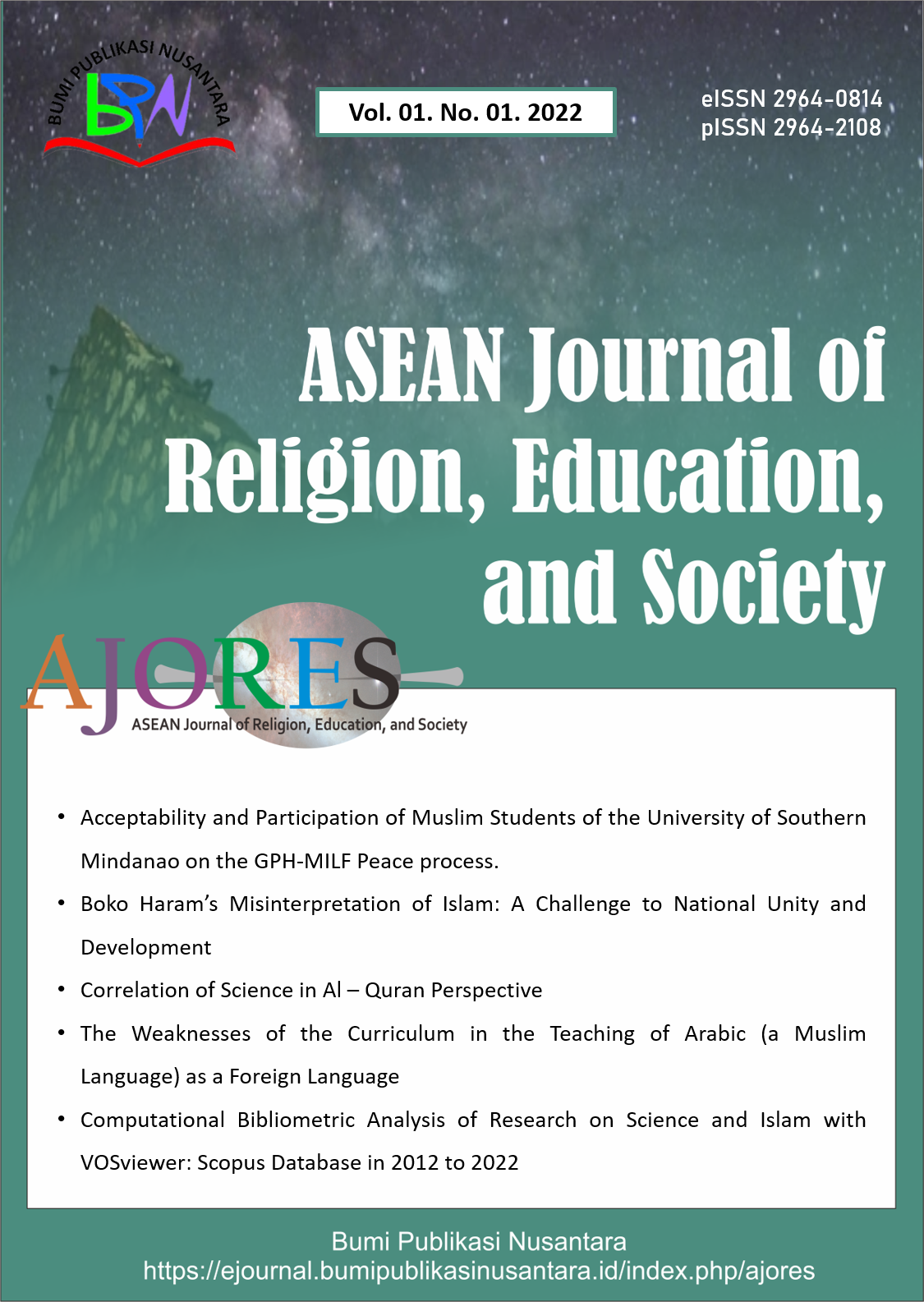Reconciling Tradition and Islamic Principles: Perspectives of Mëranao Couples on Cultural Divorce
 ),
),
(1) Rufo dela Cruz Integrated School; Mindanao State University
 Corresponding Author
Corresponding Author
Abstract
Keywords
References
Barodi, N. B. S. S. (2019). The code of muslim personal laws of the Philippines: Beyond the Lenses of Bondagjy v. Bondagjy. IIUM Law Journal, 27, 367.
Daud, K. D. (2024). The role of cultural beliefs in shaping marital practices: A study of Mëranao families. ASEAN Journal of Religion, Education, and Society, 3(2), 81-94.
De Los Santos, R. (1966). Moslem values: A challenge to education. Philippine Sociological Review, 14(2), 76-82.
Gamon, A., and Tagoranao, M. S. (2024). Navigating the challenges of Islamic legal institutions in a secular context: The Philippine experience. Al-Itqan: Journal of Islamic Sciences and Comparative Studies, 9(2), 75-105.
Guleng, M. P., Syaoki, M., and Choirin, M (2024). Exploring the dynamics of islamization in the Philippines: Past, present, and future perspectives. Jurnal Dakwah Risalah, 35(1), 33-49.
Jailobaeva, K. B., Kraft, K., Barrett, H., Niyonkuru, P., Lim, D., Marin, A., and Cossa, E. (2024). The role of faith in child marriage: Empirical evidence from Mozambique, Nepal, and the Philippines. The Review of Faith and International Affairs, 22(3), 39-54.
Lim, C. L. (1981). Insights on marriage and divorce under the muslim code. Ateneo LJ, 26, 139.
Mastura, M. O. (1994). Legal pluralism in the Philippines. Law and Society Review, 28(3), 461-475.
Rivera, G. F. (1960). The Maranao Muslims in Lumbayao, Lanao. Philippine Sociological Review, 8(1/2), 1-9.
Rivera, G. F. (1966). The Maranao Muslims in Lumbayao, Lanao. Philippine Sociological Review, 14(3), 127-134.
Saber, M. (1963). Some Observations on Maranao Social and Cultural Transition. Philippine Sociological Review, 11(1/2), 51-56.
Saber, M. D. (1962). Darangen: The epic of the Maranao. The Journal of History, 10(3), 1-1.
Shabah, M. A. A. S. (2024). Systematic literature review (SLR): The tradition of dowry in marriage in Southeast Asia. Krtha Bhayangkara, 18(3), 622-648.
Sibulo, E. A. (1974). Islamic laws of marriage and divorce as affected by Philippine legislation. Philippine Law Journal, 49, 406.
Article Metrics
Abstract View : 754 times
: 754 times Download : 251 times
Download : 251 times
Refbacks
- There are currently no refbacks.
Copyright (c) 2025 Bumi Publikasi Nusantara

This work is licensed under a Creative Commons Attribution-ShareAlike 4.0 International License.







